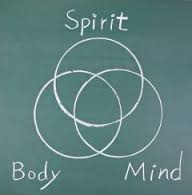References to mindfulness are popping up everywhere—from glossy magazine ads and television commercials to articles in popular press and newspapers. The act of “being mindful” has entered everyday vocabulary and a growing body of research is scientifically quantifying the numerous benefits of mindfulness practice including lowering high-blood pressure, reducing stress, improving sleep quality, strengthening concentration and boosting the immune system.
While benefits associated with mindfulness are often touted, precisely what is meant by “mindfulness” is not always clear. The term is used interchangeably to refer to a variety of concepts including a state of awareness, practices to promote awareness, a way of processing sensory input/information and as a character trait, to name a few examples. While there are many definitions of mindfulness, most definitions include the concepts of moment-to-moment awareness and non-judgment. In this sense, mindfulness is a state, not a trait and while this state may be cultivated by certain activities, such as meditation and yoga, it is not equivalent or synonymous with these activities, but rather the quality that is embodied during these activities.
Similarities Between PRYT and Mindfulness
One definition of mindfulness that captures many of the qualities that Phoenix Rising practitioners learn to cultivate is used by Frank Jude Boccio, who defines mindfulness as “the quality of mind that embodies “bare attention”—is the observing of things as they are, without choosing, without comparing and judging, without evaluating and without layering or adding any of our projections or expectations onto what is happening.”
Observation. Non-judgment. Self-awareness; these are all qualities of a mindful state that are also foundational qualities of Phoenix Rising Yoga Therapy. Practices that cultivate mindfulness may include breath awareness, movement, body sensation and an acceptance of moment-to-moment awareness. These practices are also foundational elements of the Phoenix Rising Yoga Therapy framework.
Breath Awareness
Similar to mindfulness meditation, breath awareness in PRYT is a tool used to support being present and in your body. “Falling out breath,” taking a breath in through your nose and allowing it to audibly fall out of your mouth, is powerfully supportive of being in present moment awareness. It is an entryway into the present, a transition from what was happening to what is happening now. Taking a falling out breath and breath awareness supports moving out of your head and into your body; being presently “in-body” (embodied). While the breath can be a catalyst for this transition, it is also an informer, as qualities of your breath and breathing can enable and enhance awareness of connections between your body, your mind, and current life situation.
Movement and Body Awareness
Many beginning meditators report experiencing walking meditation as being easier than sitting meditation as movement often captures and holds your mind’s attention more easily than focusing on breathing alone. Similarly focusing attention on physical bodily sensations is another technique that some find to be more supportive than breath awareness alone. Phoenix Rising uses movement and supported yoga postures to explore embodied present moment awareness, which can include bodily sensations, thoughts, memories, feelings, emotions, imagery, awareness of surroundings…anything that’s happening now.
Non-Judgment and Acceptance
Acceptance and non-judgment are elements of mindfulness. In other words, acknowledging what is; not how we think it should be or wish it were. It is important to make a distinction between acceptance and agreement. Often acceptance is collapsed with agreeing; underneath this is often a fear that to accept something means to condone and thus to support whatever is happening as being okay or somehow enabling continuation. However, acceptance does not equate enabling, but rather it is the act of completely and fully acknowledging our experience. It is through this acknowledgment that the possibility of conscious choice and subsequently, change are possible.
Non-judgment and acceptance are aspects of unconditional positive regard, a foundational principle of Rogerian Psychology, and a cornerstone of the Phoenix Rising Yoga Therapy framework. Like acceptance and non-judgment, unconditional positive regard does not equate to liking or approving of an individual or their personal actions. Rather it is the belief that humans have the capacity to choose how to respond to their situation and that no matter what choices are made, each person is doing their best. Unconditional positive regard therefore means valuing the person as doing their best to move forward in their lives constructively and respecting the person’s right to self-determination no matter what they choose to do. PRYT practitioners meet their clients with unconditional positive regard through offering self-presence (witness consciousness or observation) without judgment and using reflective dialogue to support the client in being fully present in their experience of embodied self-inquiry.
While scientific studies are verifying some of the benefits of mindfulness meditation, PRYT clients and practitioners of mindfulness self-report many of the same benefits including increased capacity to handle stress, clearer focus, greater emotional and body awareness, a feeling of relaxation, and release of physical/emotional tension.
There is no one aspect of PRYT that can be singled out as being responsible for the benefits people report. Rather PRYT provides a framework to guide embodied self-inquiry through intentionally working with aspects of mindfulness as a means of personal insight and healing, enabling people to use what they learn to improve the quality of their lives, their wellbeing and their relationship with themselves and others.
Lori VanBuggenum is a Phoenix Rising Yoga Therapist practitioner in Tucson, AZ. For more information about or to contact Lori visit embodiedyogatherapy.com


